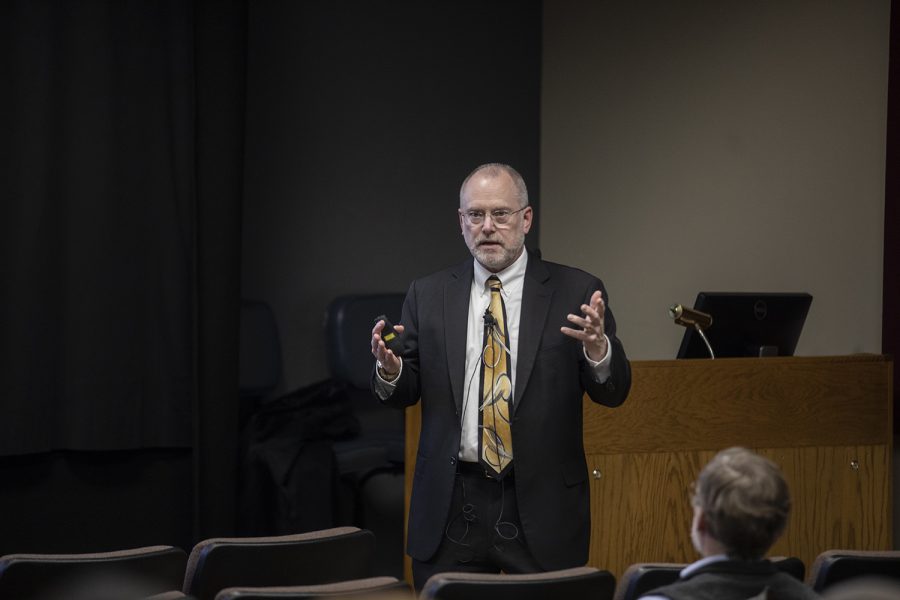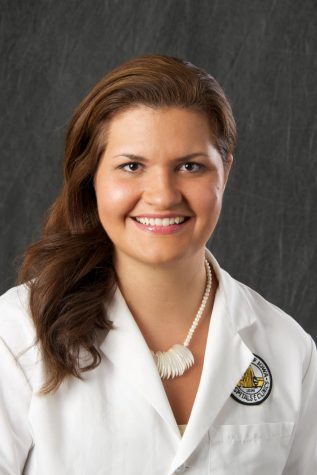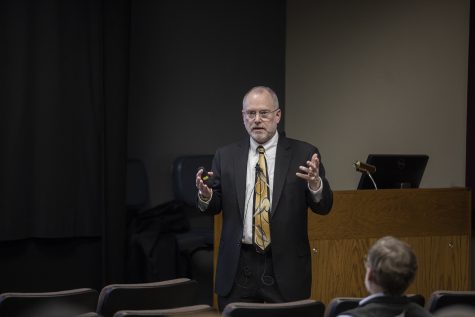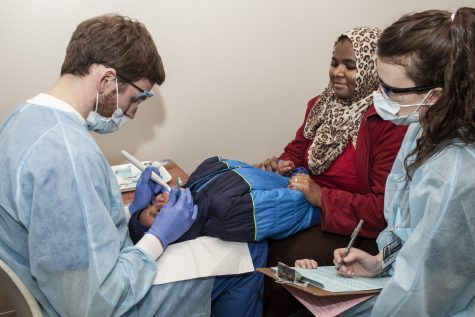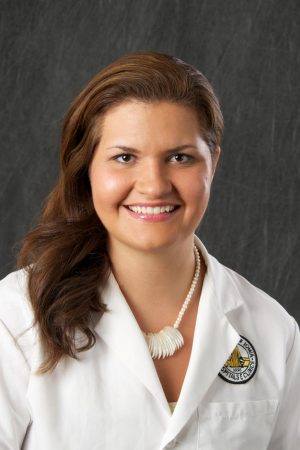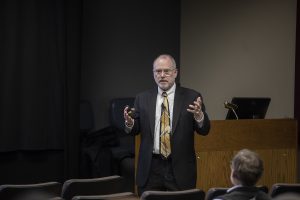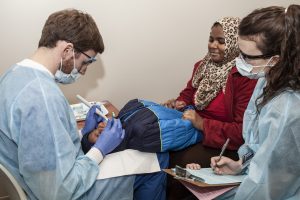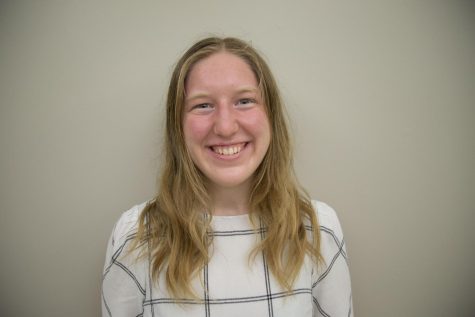Final vice president for Research candidate visits UI
The second and final vice president for Research candidate, Craig Svensson, visited the UI Feb. 21, discussing his vision for the institution’s’ research enterprise.
Dean Emeritus and Professor of Medicinal Chemistry and Molecular Pharmacology Craig Svensson speaks at the forum for the Vice President of Research on Thursday, February 21, 2019 at the IMU. Svensson is the third and final candidate for the Vice President position.
February 21, 2019
Faculty and staff gathered in 166 IMU Thursday afternoon for the second and final Research vice president forum, where candidate Craig Svensson presented his vision for research at the University of Iowa.
Currently dean emeritus of the College of Pharmacy at Purdue University, Svensson kicked off the forum by discussing the importance of growth quality and quantity of research, scholarship, and creative activity in the UI research enterprise.
“No research enterprise is going to be stronger than its faculty,” Svensson said. “This has to be the key priority for the institution.”
Svensson said the university should prioritize diversifying funding sources for research by recognizing an increased emphasis on measurable impact nationwide, emerging trends and mechanisms in competing for grants, and changes in the consolidation of funding.
RELATED: Faculty attend first Vice President for Research forum
He added that faculty need to be prepared to write up proposals for possible funding sources that emphasize the societal impact their research could have, work to build relationships with corporations and philanthropic organizations, and take advantage of convenient partnerships.
“We have to recognize the expectation of collaboration,” Svensson said. “We have to be able to work at the highest levels to pull these networks together.”
In regards to the UI’s recent emphasis on interdisciplinary research, Svensson said the latter should be talked about, championed, and celebrated. The collaboration of different creative minds results in interesting research, he said.
“You want to identify the barriers and help people over them where you can’t knock them down,” Svensson said. “We should support emerging interdisciplinary teams, forming a support group around them.”
Svensson finished his presentation on a note of warning, speaking to the risk factor associated with research and the need for good management to avoid financial or reputational liability.
For example, he said, research enterprises that require human subjects, animals, chemicals, or biologicals are all associated with risk and must be handled properly.
“It’s risky business,” Svensson said. “You want to strike that balance between meeting regulations and at the same time facilitating research.”
Finally, Svensson said, there needs to be a comprehensive training in place that will teach faculty and staff how to responsibly conduct research. He added that failure in that area would put the university at serious risk, so it should try to tend to research without hindering it.
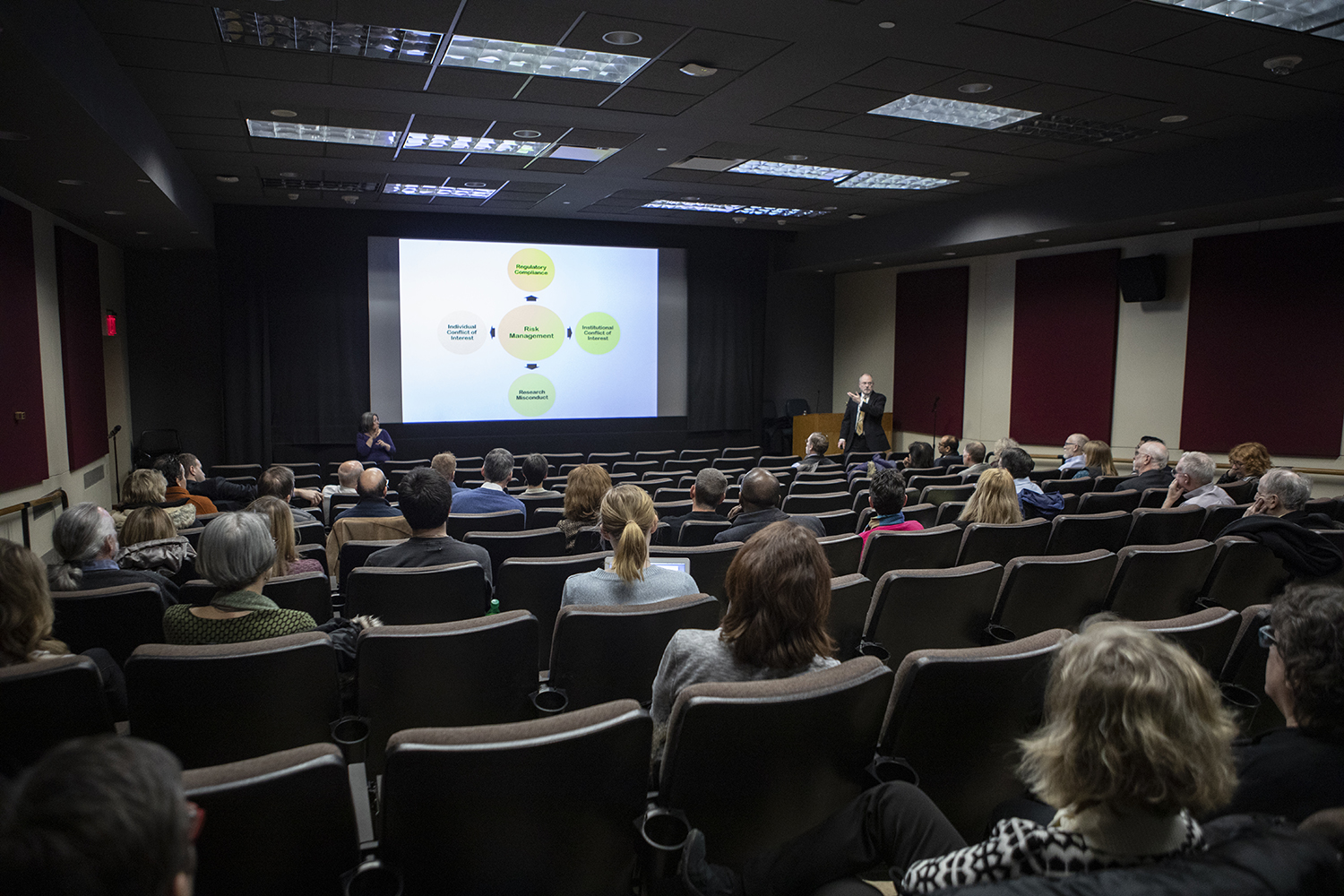
Dean Emeritus and Professor of Medicinal Chemistry and Molecular Pharmacology Craig Svensson speaks at the forum for the Vice President of Research on Thursday, February 21, 2019 at the IMU. Svensson is the third and final candidate for the Vice President position.
UI Council on the Status of Women co-chair Kathie Gonzales stepped forward to ask Svensson about how, as Research vice president, he would address a nationwide implicit bias against women in the workplace who may also have children.
“A big concern in the research world overall is the nonpromotion of women perceived to be in their reproductive years,” Gonzales said.
Svensson responded with an emphasis on intentional faculty and search committee training by the Provost’s Office to ensure that women are taking an appropriate lead when they are also having children. The institution has a commitment to those staff, he said.
Iowa Center for Research by Undergraduates Program Coordinator Melinda Licht asked Svensson if he has any ideas about how to incentivize faculty members to work with undergraduates.
“One of the problems I think we face is the fact that working with undergraduates can sometimes not be beneficial,” Licht said.
To answer, Svensson referenced Purdue University’s journal for undergraduate research and how institutionally he believes it to be important, meaningful, and worthy of credit.
“We need to look for opportunities where we have excellence,” Svensson said. “Take advantage of emerging opportunities. You need to have people who are going to be faculty champions.”



